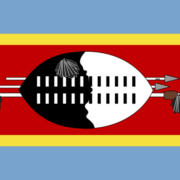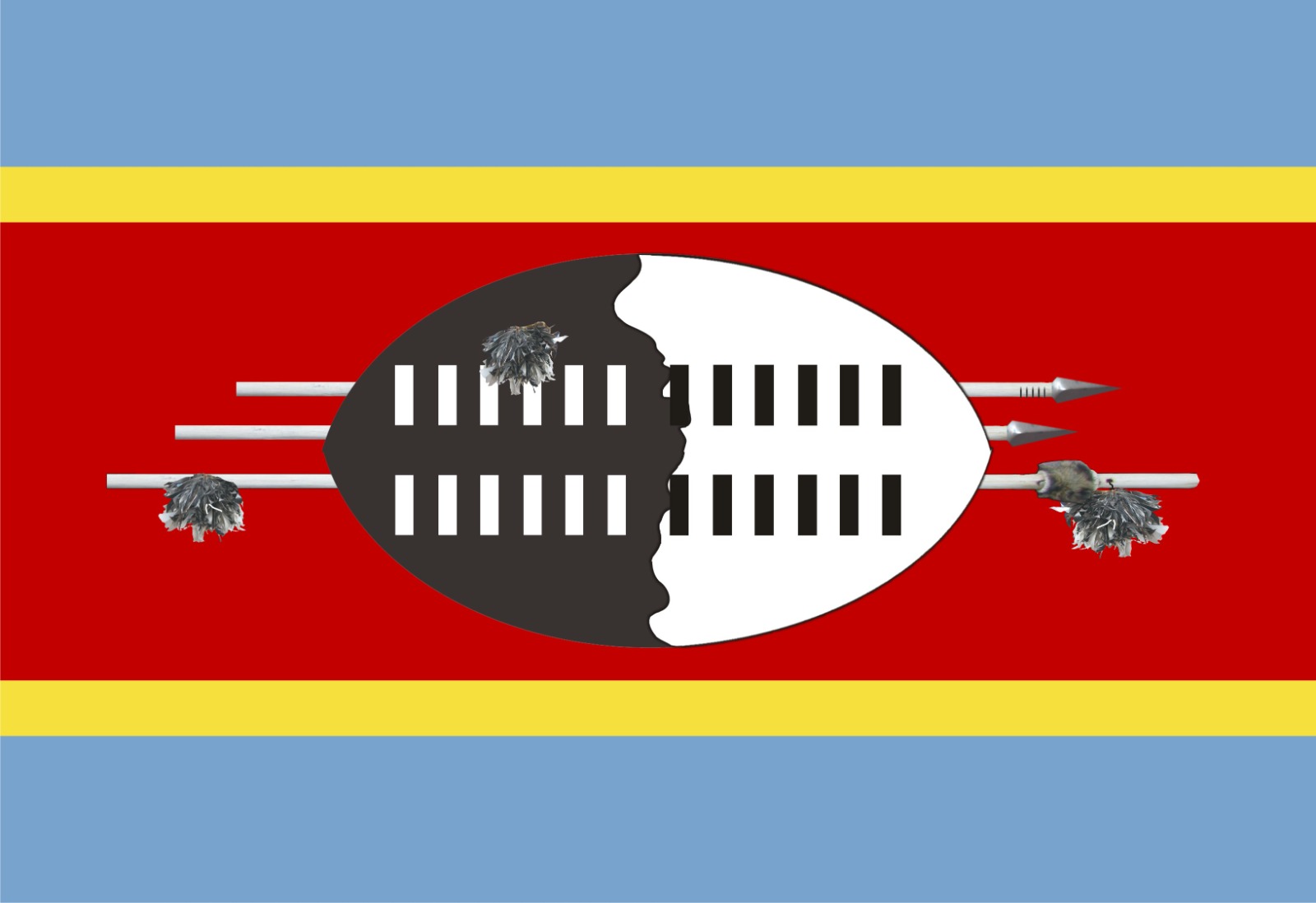ESWATINI CULTURE
ESWATINI CULTURE
INCWALA CEREMONY
This annual event takes place at the end of each year, it is the most sacred ceremony in Eswatini’s culture and marks the start of the traditional new year. Young men are commissioned to cut branches of the tree known as Lusekwane (acacia shrub) and deliver it back to their Majesties at the Royal Residence. This is followed by the main Incwala ceremony where their Majesties and the entire Nation participate in dance.

Incwala Ceremony
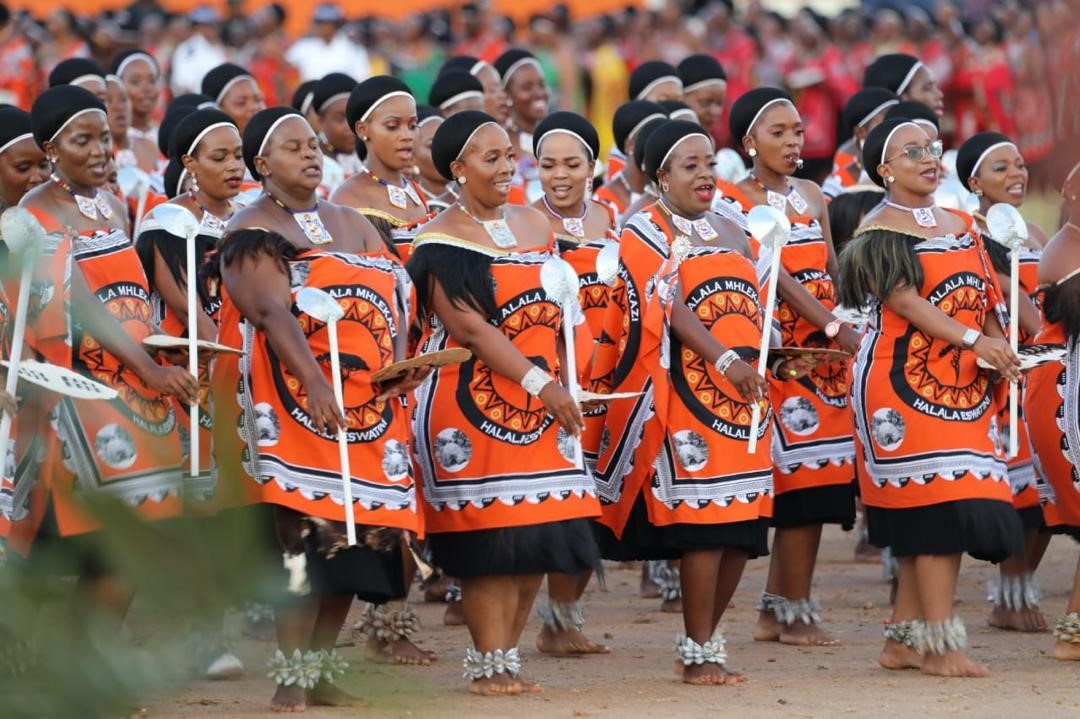
Emaganu/Marula Ceremony
EMAGANU/MARULA CEREMONY
This annual event takes place around February to April of each year. It symbolises the harvest of the Marula fruit where women deliver the marula drink to Her Majesty the Queen Mother. This is followed by the festival where Emaswati are united in song and dance. The women in particular, dominate the festivities as they are the brewers of the marula drink as well manufacturers of the skin care products from the fruit.
UMHLANGA/REED DANCE
This annual event customarily takes place around late August to early September of each year. The Reed is used to repair the windbreak around the Royal residence. The Event is also for celebrating the purity of young Emaswati women, thus its attraction of young maidens from all over the Kingdom. The maidens gather Reed and bring it back to the Royal Residence and deliver it to their Majesties. The maidens then proceed to dance before their Majesties.
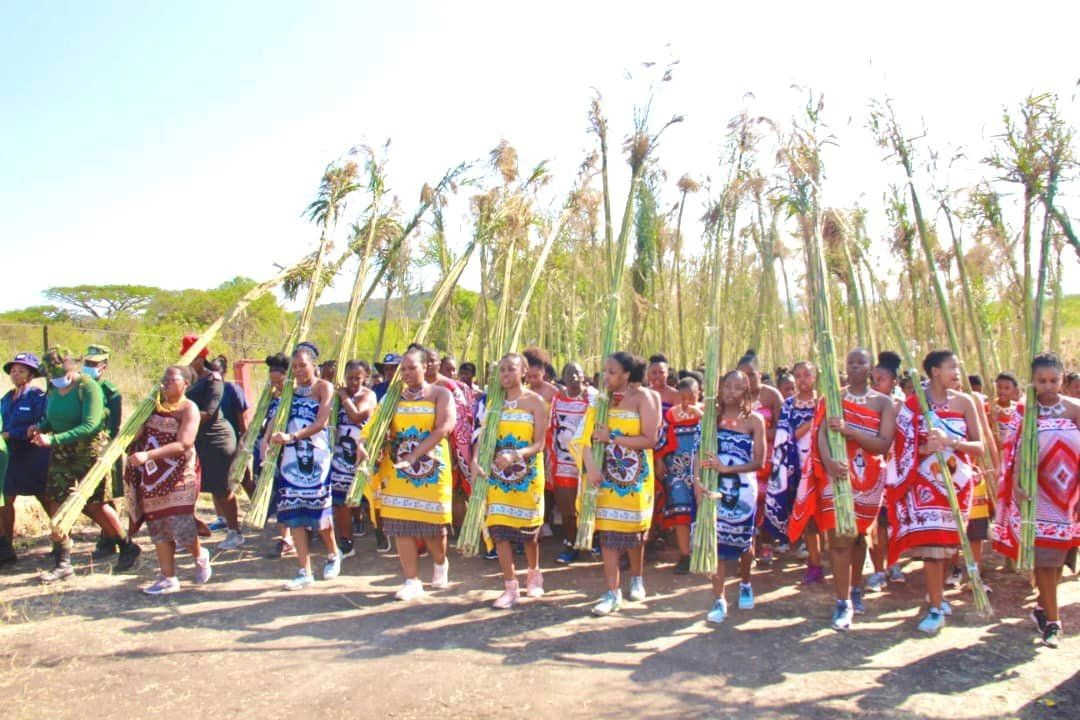
Umhlanga/Reed Dance Ceremony
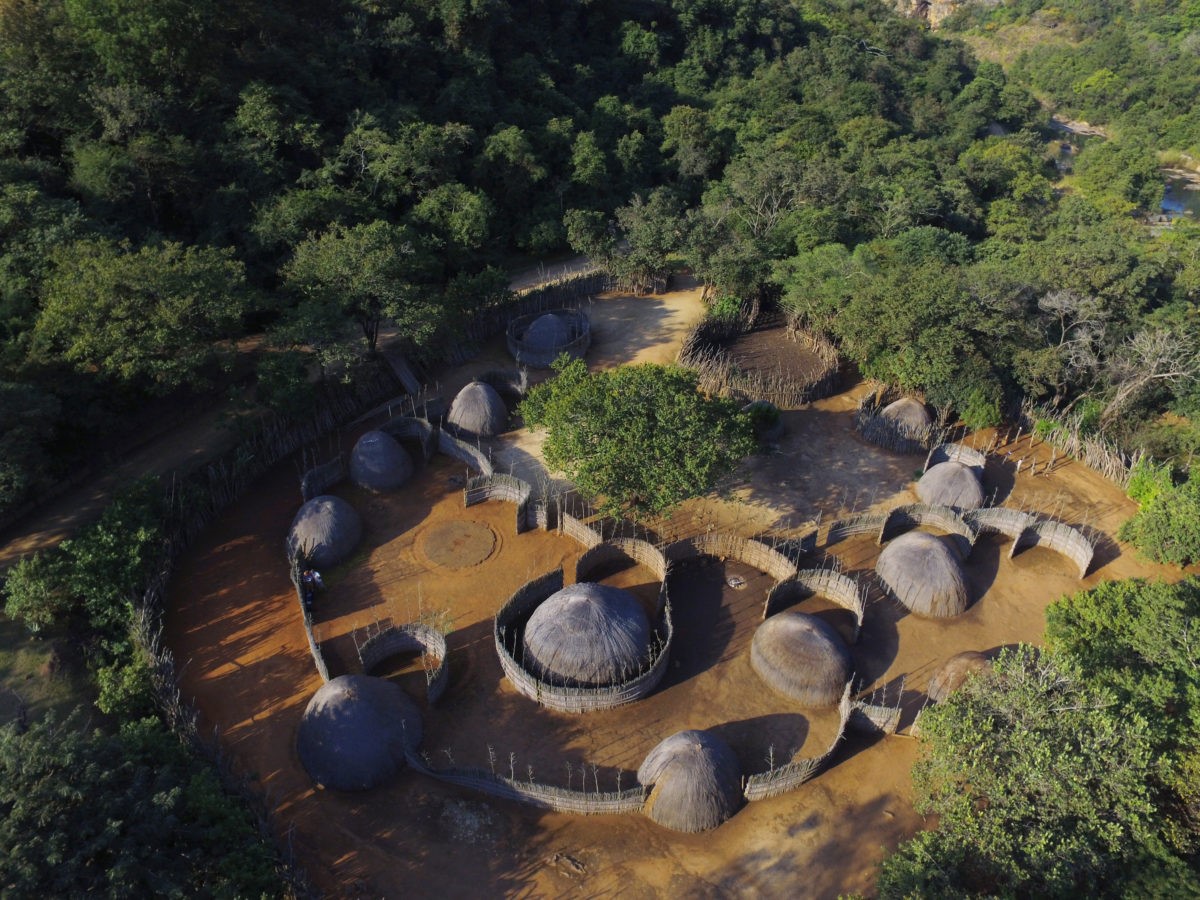
Swazi Traditional Homestead
SWAZI TRADITIONAL HOMESTEAD
The Swazi traditional homestead is the basic building block of the Swazi Society. It is composed of a number of huts, each for a specific purpose, including but not limited to sleeping, family meetings, food storage, brewing. Also within the homestead is a circular enclosure, the Sibaya (kraal) for cattle, which is made of tree logs. A Swazi man’s wealth and prestige in Eswatini culture is symbolised by the number of livestock he holds. Today most rural homesteads are a mixture of traditional huts and more modern, brick-built houses.

